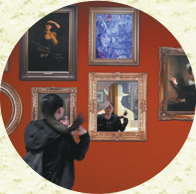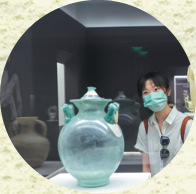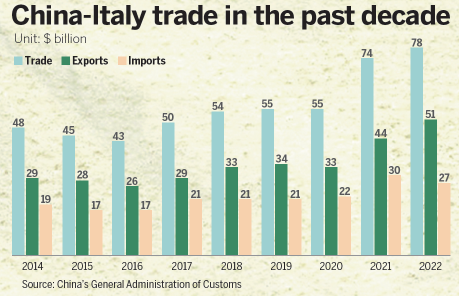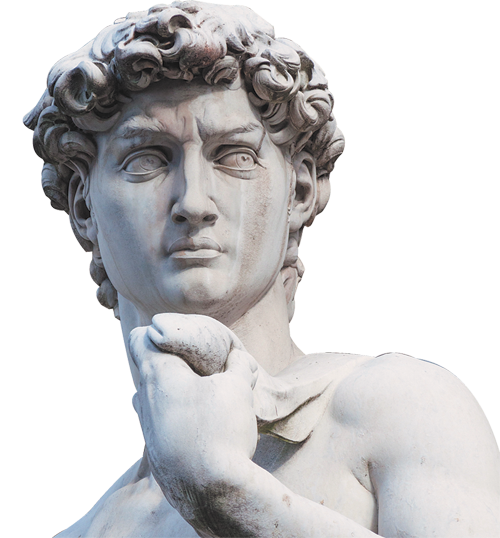China and Italy have potential for cooperation based on shared heritages, economic opportunities
Over 2,000 years ago, China and Italy, though thousands of miles apart, were already connected by the ancient Silk Road, a historic trade route that facilitated the exchange of goods, ideas, and culture between East and West.
During the Eastern Han Dynasty (25-220), Gan Ying, a Chinese diplomat, embarked on a journey to find “Da Qin”, the Chinese term for the Roman Empire at the time. References to Seres, the land of silk, were made by Roman poet Publius Vergilius Maro and geographer Pomponius Mela. The Travels of Marco Polo further fueled Europeans’ interest in China.
In a contemporary context, this historical link was revitalized by the joint construction of the Belt and Road Initiative agreed between the two countries in 2019.
China and Italy have experienced strong trade relations over the last couple of years. According to the data from China’s General Administration of Customs, bilateral trade volume reached $78 billion in 2022.
The initiative, which is celebrating 10 years since its launch, has achieved substantial advancements in infrastructure development, trade facilitation, financial collaboration and people-to-people connections between the two countries.
Experts believe that China and Italy, with their rich histories and ancient civilizations, have the potential for meaningful cooperation based on their shared cultural heritage, economic opportunities, and mutual interests.
Daniele Cologna, a Sinologist specializing in social and cultural change among the Chinese at Italy’s University of Insubria and a board member of the Italian Association of Chinese Studies, said: “Italy and China, given their rich heritage and long histories, are well-positioned to nurture strong relations within and beyond the Belt and Road Initiative.”
Cologna said the heritage of Italians being among the first to make China known to other Europeans creates a unique understanding between the two countries.
In terms of economic cooperation, Cologna highlighted the significant role of luxury goods in the commercial interchange between China and Italy. “Italian brands, especially luxury brands, are well-liked and recognizable in China,” he said. “Italian manufacturers see China as an important place to outsource production due to its skilled and mature workforce.”
Alessandro Zadro, head of the research department at Italy China Council Foundation, said: “China presents a highly promising market with a growing domestic demand driven by increasing per capita income, ongoing urbanization, the expansion of important inland regions, and a rising segment of affluent consumers who prefer Made in Italy products.
“Italy should seize opportunities in China, not only by boosting exports in traditional sectors such as fashion and luxury, design, agribusiness, and automotive, but also by expanding its solid market share in emerging and highly innovative sectors like renewable energy, new energy vehicles, biomedical advancements, and preservation of China’s vast national historical and cultural heritage,” he added.
Cooperation between China and Italy is also evident in areas of education and research. Strengthening ties as such is believed to be in the interest of both nations, considering their excellent academic institutions and tradition of academic excellence.
Currently, Italy has 12 Confucius Institutes promoting language and cultural exchange in the country. Efforts have been made over the past decade to promote the teaching of the Chinese language in the Italian high school system.
Federico Masini, director of the Confucius Institute at the Sapienza University of Rome, said: “Today, more than 17,000 students throughout Italy are studying Chinese as part of their curriculum, which is a significant number. Over 100 Chinese teachers, who are native Italian speakers, have been employed in the Italian education system to teach Chinese on a permanent basis. This achievement has played a vital role in bridging closer ties between China and Italy.”
While the Confucius Institute has been viewed as a soft power instrument of China in Italy, Masini said it can also be seen as a reciprocal relationship where it has served as a soft power instrument of Italy in China. “This is because we have hosted numerous young Chinese scholars, students and individuals who have the opportunity to experience Italian life and learn from it. It is not about exporting one country’s system to the other; instead, it acts as a platform that encourages bilateral relations between young people and fosters mutual understanding,” he added.
However, despite the initial intentions of both China and Italy to advance the BRI agreements, various factors have led to a slowdown in their cooperation in recent years. The frequent changes in the Italian government have shifted the focus of the initiative’s development.
Additionally, the outbreak of the COVID-19 pandemic and shifts in international geopolitics have further affected the pace of bilateral collaboration. As a result, the progress of the cooperation on the BRI has been affected, experiencing a slowdown during this period.
Giulio Pugliese, a senior fellow (Asia-Pacific) at the Istituto Affari Internazionali, an Italian international relations think tank, said amid the escalating politicization and securitization of foreign capital, particularly from China, and the protectionist sentiments across the globe, Italy’s stance toward China is likely to become more cautious.
“Concerns regarding the potential repercussions of US secondary sanctions on Chinese investments and technology have significantly influenced Italy and much of Western Europe, thereby weakening the impact of the MoU,” Pugliese explained.
Maria Azzolina, president of the Italy-China Institute, emphasized the importance of maintaining long-standing connections despite political changes, saying: “The relationship between Italy and China cannot be easily changed due to a new government.
Strong business interest
“The strong business interest between the two countries persists, and Italian companies are eager to do business regardless of the government in power,” she said. Azzolina believes Italy will work toward finding a balance and maintaining strong ties with China, as cultural connections have always been significant.
Fan Xianwei, secretary-general of Milan-based China Chamber of Commerce in Italy, acknowledges all the external factors influencing the cooperation between the two countries.
However, he said: “There is still a strong appetite among businesses and companies in both countries to expand the collaboration. As long as the economy heats up, politics will also improve.”
One of the significant challenges to China-Italy cooperation is the increased scrutiny of Chinese investments by the West, making it difficult for Chinese companies to invest in certain strategically sensitive sectors.
Filippo Fasulo, co-head of the Geoeconomics Centre at the Italian Institute for International Political Studies, a think tank, suggested that cooperation between China and Italy needs to be approached “in a smart and strategic manner “in the current sensitive period. One possible approach could be to ensure that Italian governance remains in control, particularly in areas such as ports, he added.
Fasulo believes greenfield investments in specific fields, such as establishing battery companies in Italy, can help alleviate concerns and build trust between China and Italy.
“Such strategic investments with a strong local impact align with the original principles of the Belt and Road Initiative, emphasizing win-win cooperation and showing the local community that these investments bring opportunities,” he said.
wangmingjie@mail.chinadailyuk.com

Major sculptures and architectural marvels, including the artwork of David by Michelangelo, the Milan Cathedral, the Colosseum in Rome, the Leaning Tower of Pisa, and the Rialto Bridge in Venice, tell the rich history of Italy.

A Chinese character fu, which means good fortune, on a red light backdrop, is projected on the Mole Antonelliana to celebrate the Chinese New Year in Turin, Italy, on Jan 21.

A visitor is seen at the Self-Portrait Masterpieces from the Uffizi Galleries Collections at the National Museum of China in Beijing on April 26. JIN LIANGKUAI/XINHUA

A visitor views exhibits at an exhibition titled Tota Italia — Origins of a Nation at the National Museum of China in Beijing in July last year.

Visitors look at Chinese shadow puppets at the 87th International Crafts Fair in Florence on April 25.

From top: Spaghetti, tiramisu, pizza, and dirty latte are a hit among the Chinese. Italian cuisine, renowned for its rich flavors and culinary traditions, has found a special place in the hearts of Chinese food enthusiasts.

China-Italy trade in the past decade


Post time: Jul-26-2023
